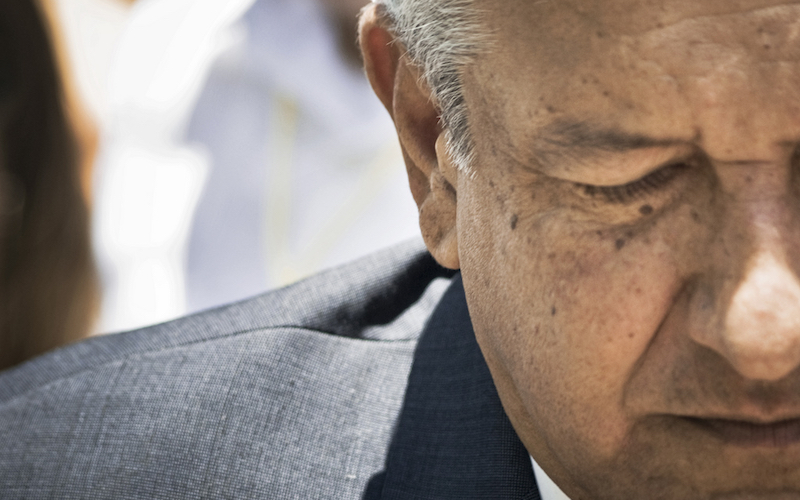
The Normalization of Political Risk
The increasingly uncertain political landscape around the world has bewildered politicians, pundits, and businesses alike. Yet, bullish equity markets and a low global volatility outlook has stumped even the most credible political risk analyst. Despite the dramatic shifts from established economic norms and political orthodoxy, particularly in the developed world, global markets have seemed poised to value certainty over risk. In the United States, the stock market has climbed despite looming changes to the country’s global trade policy and the cloud of Russian intervention during the 2016 election. The recent trend of politically agnostic investment in the developed world is part of a larger geopolitical trend that favors inaction over intervention and overlooks instability in the interest of continuity. While financial stability in lieu of political changes is a net positive, instability creates a check on irresponsible actors and incentivizes centrism. Moreover, valuing only continuity creates a discriminatory environment where political risks are tolerable in developed economies, while the developing world struggles to find investment.
Interestingly, the tide towards political populism and expediency in the developed world are reminiscent of the pink tide of populism in Latin America. And yet, the same protectionist and isolationist ideology exhibited by President Trump and French presidential candidate Marine Le Pen are indigestible in emerging markets, where a growing middle class will be driving global growth in this century. According to a PwC report published this year, emerging markets are projected to enjoy almost twice the GDP growth, accounting for 65% of global growth by 2021. In Mexico, however, the prognostic of an Andres Manuel Lopez Obrador (Amlo) presidency has investors shaking in a market hungry for investment and reform.
In developed economies, international investment and global financial performance have been a traditionally reliable metric of the electoral lifecycle of governments. However, the forecast for global volatility has not reflected the dramatic deviation from orthodoxy. A complacent investment community perpetuates uncertainty rather than eliminates it. Cross border investments are inherently political and can normalize what is, in fact, not normal. The World Bank Group, for instance, has recently come under sharp criticism after details emerged of Ivanka Trump’s relationship with bank’s president, Jim Yong Kim. The bank’s effort to consult with the Trump administration on infrastructure in the United States has raised questions of a double standard in developed countries. Would the bank be as supportive to assist with the project had it not been proposed by the family member of the bank’s largest contributor? Joel Hellman, a former anti-corruption official at the World Bank said to the Financial Times, “If this was not the United States and this was happening in any other country we would be deeply uncomfortable with it.”
In safeguarding against the unknown, political risk insurance can be used as a catalyst for investment. Yet, the double standard is especially true in the underwriting industry, where risk appetites have more to do with the investment destination than the risk itself. The shifts in policy in Europe and the United States are closely mirroring those in emerging markets and while unpredictable leaders with nationalist agendas are nothing new, the risk tolerance is surprising. Underwriters have been eager to write political risk policies for investment in the Global North but are equally reluctant to back investment in post-conflict economies in Africa. This trend creates a perpetual dependence on developed economies, at the expense of the developing world, ignoring potentially higher margins and scalability.
In part, this is due to an outdated political risk industry. Country experts and boutique firms have assured their clients that weekly reports on macroeconomic indicators will mitigate their risk. In fact, these reports have brought a false sense of assurance that is unable to deliver tangible financial risk mitigation that either incentivizes or creates investment opportunities. Analysts and underwriters must become dynamic and forward-looking to anticipate political risks as opposed to backwards looking and standardized. Analysts should be approaching political risk holistically, using technology and in-country experience. However, data analytics and reports are only half of the solution. Political consultants have not yet leveraged the tools they have used to predict change to mitigate and respond for clients. Clearly, the appetite for political underwriting in more developed economies is larger than that in the developing world, especially if the risk is reduced to indices and GDP. Modern political analysis must cross industry lines, assess people instead of numbers, and offer a solution as opposed to a clearer problem.
Complacency for the sake of continuity must be challenged in the global investment community. A failure to accurately evaluate and measure political risks in the developed world encourages unorthodoxy and political expediency. Moreover, it creates an unfair and discriminatory environment where investment opportunities in emerging markets are overlooked and even ignored. For this reason, it’s essential for political risk analysts and underwriters to leverage a new and holistic approach to evaluate the ubiquity of political risk in the 21st century.

